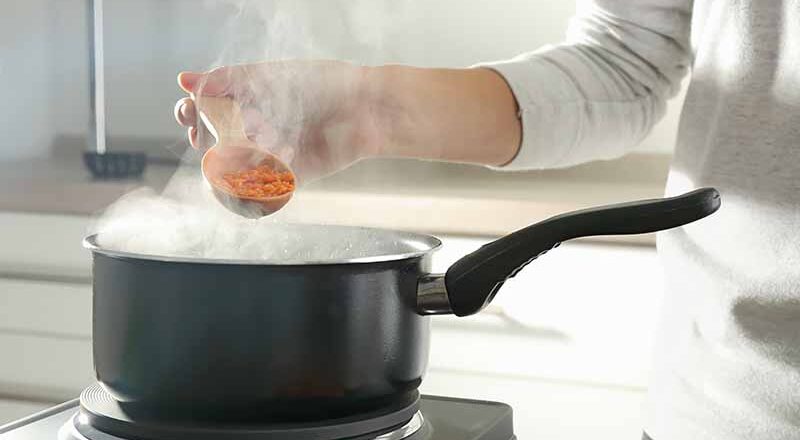When it comes to cooking, choosing the best saucepan material is one of the most critical decisions you can make. A saucepan is not just another kitchen toolit’s your trusted partner for simmering, boiling, and creating culinary magic. But with so many options available, how can you be sure you’re making the right choice?
In this article, well dive deep into everything you need to know about saucepan materials, their pros and cons, and how they align with your cooking needs. For kitchen professionals and home cooks alike, understanding the key differences in materials can tremendously improve your cooking experience.

The Tremendous Role of Saucepan Materials in Cooking
To truly appreciate why choosing the right saucepan material matters, it’s essential to first understand the role materials play in cooking. From heat conductivity to durability and cleaning ease, the material can make or break a recipe.
The Importance of Heat Conductivity
A saucepans material directly influences its ability to conduct heat evenly, ensuring perfectly cooked food. Materials like copper and aluminum are particularly known for their excellent heat conductivity, making them great options for precision cooking.
Durability and Longevity
A good saucepan should withstand the test of time. This is where stainless steel excels due to its resistance to rust, corrosion, and scratches. Its a terrific choice for long-term use.
Ease of Maintenance
Cleaning a saucepan is often where the rubber meets the road. Non-stick coatings make cleaning a breeze, but they require certain precautions to maintain their finish. For tips on cleaning scorched pans, check out this useful guide: clean a scorched pan.
Popular Saucepan Materials: Which One Is Right for You?
Now that we know why the material matters, lets look at some of the most popular options. Each type has its own unique attributes, making it ideal for certain kitchen needs.
Copper Saucepan
Copper is often considered the gold standard for saucepan materials. Its excellent heat conductivity makes it ideal for tasks that require precise temperature control. However, copper requires regular cleaning to maintain its sheen and can be expensive.
Aluminum Saucepan
Aluminum saucepans are lightweight, affordable, and offer good heat conductivity. To enhance durability, most aluminum pans are anodized. However, untreated aluminum can react with acidic foods, altering their flavor.
Stainless Steel Saucepan
The stainless steel saucepan is a delighted choice for many home cooks due to its durability and non-reactive properties. While it doesnt conduct heat as well as copper or aluminum, a layered base with aluminum or copper can resolve this.
Cast Iron Saucepan
Cast iron saucepans are incredibly durable and retain heat exceptionally well. They are perfect for slow cooking and even browning. If you’re curious about maintaining this material, this guide may be helpful: Teflon-coated pans.
Non-Stick Saucepan
Non-stick saucepans are terrific for cooking delicate foods like eggs and pancakes. However, their coating can wear out over time, so they require proper care. You can learn more about avoiding spills while pouring your creations here: avoid spills while pouring.
Factors to Consider When Choosing the Best Saucepan Material
While knowing the different materials is essential, other factors also play a role in determining the best saucepan material for your needs.
Budget
Your budget can often narrow your choices. Premium materials like copper and high-end stainless steel tend to be more expensive, while aluminum and non-stick options are more affordable.
Cooking Style
What you cook frequently should guide your choice. For example, stainless steel is great for searing, while non-stick is ideal for omelets and sauces.
Maintenance
Some materials, like cast iron and copper, require more upkeep. If you prefer low-maintenance cookware, stainless steel or non-stick pans might be better suited for you.
Health and Safety
Consider the health implications of your saucepans material. Non-stick coatings may release toxic fumes at high temperatures, while untreated aluminum can react with food.
FAQs on Choosing the Best Saucepan Material
1. Which saucepan material is best for beginners?
For beginners, aluminum or non-stick saucepans are excellent choices as they are lightweight, affordable, and easy to use.
2. Can I use non-stick pans for high-heat cooking?
Non-stick pans are not suited for high-heat cooking since their coatings can degrade. Consider stainless steel or cast iron for high-heat applications.
3. Are copper saucepans worth the investment?
If you require precision in cooking and dont mind the extra maintenance, copper saucepans are a tremendous investment.

The Final Verdict
The choice of what is the best saucepan material ultimately depends on your individual cooking style, budget, and maintenance preferences. Whether you opt for the precision of copper, the durability of stainless steel, or the ease of non-stick, each material has its own unique perks. No matter your choice, investing in a high-quality saucepan will pay off in countless delicious meals.
Want to dive deeper into saucepan usage? Check out this external resource on saucepan types and uses: Dalstrong Saucepan Guide.
For further tips on cleaning and maintaining saucepans, explore this helpful guide: clean a burnt saucepan.
This article contains affiliate links. We may earn a commission at no extra cost to you.

